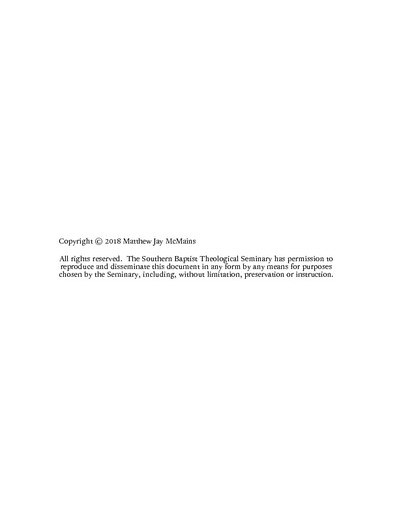Deliver Us From the Evil One: Cosmic Conflict in Matthew's Gospel
Subject
Bible. Matthew--Criticism, interpretation, etc.Spiritual warfare--Biblical teaching
Good and evil--Biblical teaching
Abstract
This dissertation asserts that a foundational theme in Matthew's Gospel is the cosmic conflict between Jesus and Satan, and that not only does Matthew develop a theology of the devil, but that this theme is foundational for the plot of Matthew's drama. Chapter 1 introduces the question at hand, and surveys those works which relate to my thesis.
Chapter 2 analyzes the Jewish literature from the Old Testament and the Second Temple period relevant to the cosmic conflict motif to determine if, and in what way, such has affected Matthew’s framework.
Chapter 3 discusses the human antagonists of cosmic conflict. The antagonists are those characters in the Gospel which at any point in time seem to hinder the ultimate goal of the protagonist. The human antagonists include Herod, the Jewish leaders, the disciples, Judas, and Pilate.
Chapter 4 then discusses the non-human antagonists in Matthew. These include demons, disease, and Satan.
Chapter 5, on the other hand, analyzes the protagonists of Matthew’s Gospel, including the magi, God the Father, the Holy Spirit, angels, and the disciples.
Chapter 6 examines Matthew's plot in light of cosmic conflict. This chapter demonstrates how a recognition of the pervasiveness of this theme in Matthew helps one better understand Matthew's narrative plot. I further argue that three texts are essential to Matthew's narrative framework: 4:1–11; 12:22–32; and 28:16–20. This chapter shows how Matthew's narrative weaves in and out of these three texts into a narrative web with cosmic conflict at its center.
Finally, chapter 7 offers a summary of the work as a whole that a robust theology of cosmic conflict is present in Matthew’s Gospel.

